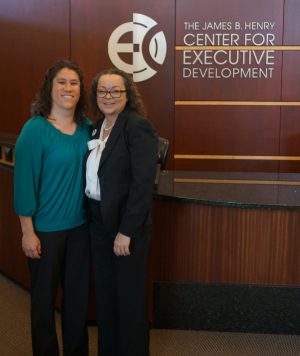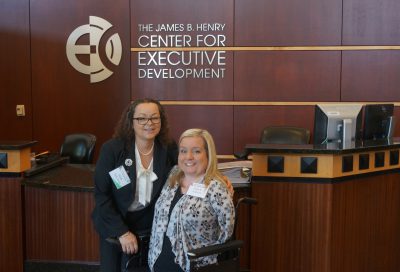The 2016 Midwest Regional Iverson Bell Diversity Summit was the first major conference to focus on disability and accessibility in veterinary medicine.
On May 20, veterinary professionals, students, educators, and staff from across the country gathered at the James B. Henry Center at Michigan State University for the 2016 Midwest Regional Iverson Bell Diversity Summit.

The biannual three-day event was co-hosted by the Michigan State University College of Veterinary Medicine and the Purdue University College of Veterinary Medicine. This year’s focus was integrating disability and accessibility within current definitions of diversity. It provided attendees with the opportunity to learn about the many types of disabilities, the responsibilities that colleges of veterinary medicine (CVM) have to assure that students, faculty and staff have appropriate and legally protected accommodation, and to understand how disabilities are a part of diversity and inclusion programs.
This was the first major conference to focus on disability and accessibility in veterinary medicine. Dr. John Baker, dean of the Michigan State University College of Veterinary Medicine, addressed the importance of this topic in his opening remarks.
“The disability topic for this conference was selected because of our increased awareness that our population is changing,” Baker said. “Invisible and visible disabilities are not discussed often; in fact, there are some who are afraid to bring them up at all. Addressing this topic will help us to chart a course for success in veterinary education.”
Dr. Kim Dodge, veterinarian and co-founder of the Association of Medical Professionals with Hearing Loss, earned her DVM from Michigan State in 1999. Dodge was invited to speak at the conference this year, and said she was proud to see that her alma mater is working to spearhead initiatives to accommodate persons with disabilities in veterinary medicine.
“When I went to school, the Americans with Disabilities Act was relatively new,” Dodge said. “People didn’t know how to accommodate deaf students. Everyone always wondered ‘what are we going to do with these students?’ Now, the question is ‘what do we need to do to ensure these students can learn alongside everyone else?’ It’s become a different approach.”
For a portion of the conference, participants were split into focus areas. The areas focused on student, curriculum, and the learning and working climate issues at colleges of veterinary medicine as they pertain to disabilities and inclusion. The groups discussed opportunities and ways for the colleges to create and enhance an inclusive culture for individuals with disabilities. Evidence-based practice, findings, and recommendations were presented at the end of the conference. The groups understood and concluded that disabilities are a component of diversity and that everyone has a responsibility to create an inclusive environment.

Dr. Erin Andrews, supervisory psychologist and co-director of Psychology Training at Central Texas Veterans Health Care System, said that she was excited to be part of such a groundbreaking summit as both a keynote speaker and a participant.
“Most of the time, we leave disability out of our definitions of diversity,” Andrews said. “There’s still not a strong disability voice at the table when we’re talking about diversity and inclusion, and I am excited to see that as our main focus this weekend.”
The colleges that were represented at the summit expressed interest in forming a committee to discuss setting technical standards for accessibility in colleges of veterinary medicine that are led by the Association of American Veterinary Medical Colleges (AAVMC). Dr. Hilda Mejia Abreu, acting assistant dean for Admissions and Scholarships and assistant dean for Diversity and Inclusion at the Michigan State University College of Veterinary Medicine, said that she was excited to be at a university so committed to promoting all aspects of diversity.
“Our goal was to create an accessible culture for students and faculty members of all backgrounds,” Mejia Abreu said. “By discussing evidence-based and best practices for assisting students, staff, and faculty members with disabilities, we are helping to ensure that every individual receives the highest quality education we have to offer.”
